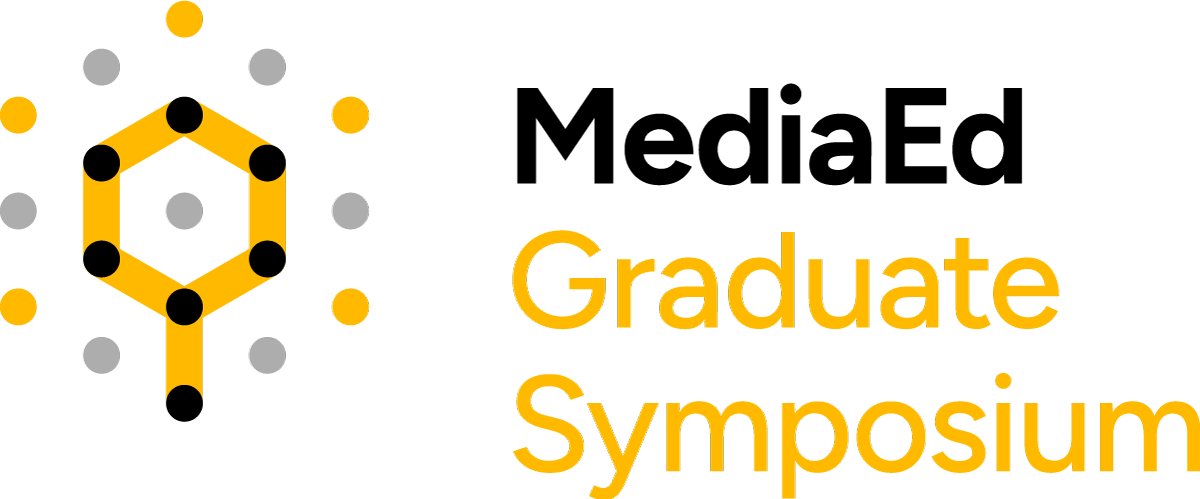Graduate Symposium
The formal application to the 2024 MediaEd Graduate Symposium will open on March 15th.
Starting in June 2024, a regular online monthly meeting will be schedule to allow the group to get together and plan an in-person gathering in early 2025.
See the list of mentors and students who secure their participation. Want to join? Email Yonty Friesem
In your email, please provide the following details:
- Name
- Contact info
- Institution/Affiliation
- Level of Degree
- Discipline of Study
- 3-4 sentence on the goals for yourself in this MediaEd Graduate Symposium
- Up to 3 links/upload work you have done in the area
About the MediaEd Graduate Symposium:
The initial phase of the program will be delivered virtually through a monthly real-time (synchronous) 2-hour Zoom meeting. The sessions be interactive workshops with different guest speaker every month. You can see our tentative program and sessions.
We will start with a six-month virtual program designed to provide you with the knowledge, skills, and resources to effectively teach and research media literacy in diverse learning environments. Through a series of interactive workshops with experts in the field, participants will explore various aspects of media literacy education, including:
- Theoretical Frameworks of Media Literacy Education
- The Roots of Critical Media Literacy
- On News, Information, and Digital Literacy
- Impacting Media and Education Policy
- Ethical and Legal Considerations in Media Education research
- Media Education Research Within Educational Settings
Program Dates and Times:
The program will run for six months, starting in June 2024. Real-time (synchronous) sessions will be held once a month for two hours each, typically on evenings of weekdays in the U.S. to accommodate participants' schedules.
Target Audience:
This program is designed for graduate students interested to research different aspects of media education, including those in master's, doctoral, and education specialist programs. The program is also open to early-career scholars and educators interested in incorporating media literacy into their teaching and study. Read more information regarding graduate credits and various certificates.
Program Benefits:
Through this academic development program, graduate students will gain:
- A comprehensive understanding of concepts, theories and research design in media literacy education
- Practical skills for studying and teaching critical thinking, SEL, media analysis, and media production
- Expertise in integrating research methods into a media literacy study
- An awareness of ethical and legal considerations in media education and studying students
- The ability to develop a research in media literacy education that effectively impact policy
